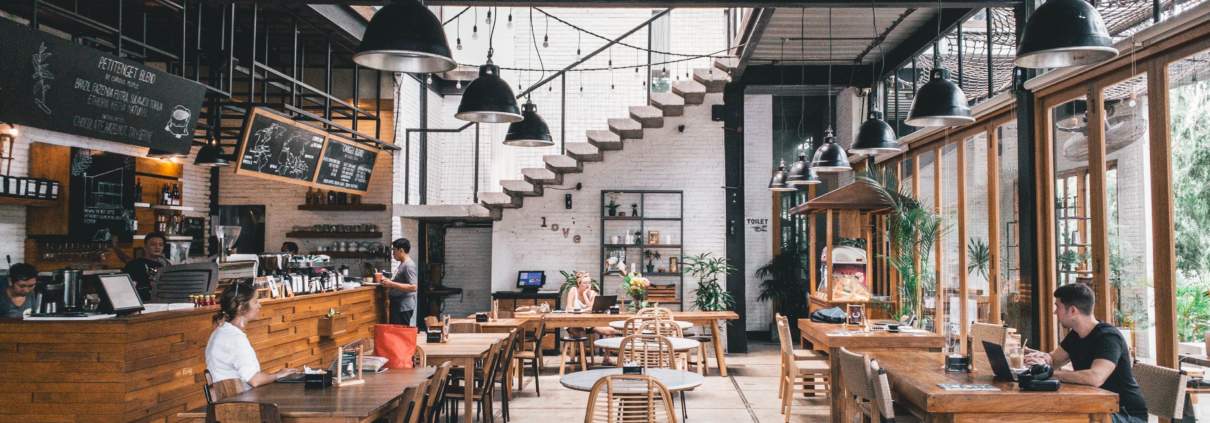Ottawa unveils targeted COVID-19 business support benefits

While the coronavirus pandemic has by no means subsided, the federal government clearly believes that the economy is regaining its footing, with recent job performance data confirming a return to pre-pandemic employment levels. Accordingly, Ottawa last week allowed three key COVID-19 business benefits—the Canada Emergency Wage Subsidy, the Canada Emergency Rent Subsidy and Lockdown Support—to expire.
In their place, new and highly-targeted programs—set to run until at least May 7, 2022—were announced. They’ve intended to support businesses that continue to be impacted by social distancing restrictions and the lingering pandemic-driven economic malaise in some parts of the country.
The Tourism and Hospitality Recovery Program would be available to select tourism and hospitality sector businesses. That could include hotels, restaurants, tour operators, convention centres or trade show organizers, to name only a handful of eligible organizations. Qualifying applicants would need to demonstrate:
- “An average monthly revenue reduction of at least 40 percent over the first 13 qualifying periods for the Canada Emergency Wage Subsidy (12-month revenue decline); and
- A current-month revenue loss of at least 40 percent.”
The 12-month revenue decline would be the average of all revenue decline percentages for the period between March 2020 and February 2021. Organizations that ceased operation for reasons other than COVID-19-related closures would not be able to include those periods in the calculation. The maximum wage and rent subsidy rate under the program would be 75 per cent between October 24th, 2021 and March 12th, 2022. It would start at 40 per cent for eligible organizations that can demonstrate a 40 per cent monthly revenue decline, then increasing in proportion to current-month revenue losses. Wage and subsidy rates would be calculated based on current-month revenue losses as compared to prior reference periods.
Businesses that qualify for the Tourism and Hospitality Recovery Program would also be eligible for Lockdown Support at a fixed rate of 25 per cent, pro-rated based on the number of days a location was forced to close due to pandemic restrictions.
The other new benefit, the Hardest-Hit Business Recovery Program, would provide rent and wage subsidies to organizations that do not qualify Tourism and Hospitality Recovery Program, but are struggling to make ends meet. To qualify, they would need to demonstrate:
- “An average monthly revenue reduction of at least 50 percent over the first 13 qualifying periods for the Canada Emergency Wage Subsidy (12-month revenue decline); and
- A current-month revenue loss of at least 50 percent”
The revenue decline calculation would be the same as for the Tourism and Hospitality Recovery Program, but the maximum wage and rent subsidies would be 50 per cent for the period from October 24th, 2021 to March 12th, 2022. In this case, the rates “would start at 10 per cent for eligible hard-hit organizations with a 50 per cent current-month revenue decline, increasing thereafter on a straight-line basis to a maximum rate of 50 percent for those with a current-month revenue decline of 75 percent or higher.” Rates would be calculated based on current-month revenue declines compared to a prior reference period. Rent and subsidy rates would be halved from March 13th to May 7th, 2022.
As above, businesses that qualify for the Hardest-Hit Business Recovery Program would also be eligible for Lockdown Support at a fixed rate of 25 per cent, pro-rated based on the number of days a location was forced to close due to pandemic restrictions.
In addition, the government announced an extension to the Canada Recovery Hiring Program until May 7, 2022, while proposing to increase the subsidy rate for eligible employers under the program to 50 per cent from October 24th to November 20th, 2021. The subsidy was set to expire on November 20th, 2021. Remuneration would be calculated using the existing baseline period (March 14th to April 10th, 2021), while qualifying organizations would need to meet existing eligibility rules and demonstrate a revenue decline of more than 10 per cent.
Lastly, Ottawa is also proposing to increase the monthly cap on eligible expenses under the now-defunct Canada Emergency Rent Subsidy—to $1 million from $300,000 for all of a company’s locations (or $75,000 per location). The benefit would now be available to organizations that qualify for the rent subsidy under the Tourism and Hospitality Recovery Program and the Hardest-Hit Business Recovery Program.
The Canada Recovery Caregiving Benefit and the Canada Recovery Sickness Benefit would also be extended until May 7, 2022, while the maximum duration of the benefits would be extended by two weeks (for a total of 44 weeks for the caregiving benefit, and six weeks for the sickness benefit).
The question now is whether the government’s calculations are correct and that the timing is right for a wind-down of benefits such as the CEWS and CERS. Qualifying rules for the new programs are far more stringent and will benefit only a relative handful of severely-impacted businesses—and that’s by design.
Ottawa’s implied message is clear: the worst of the pandemic is over, and the majority of businesses in Canada will need to find a way to succeed on their own.
Armando Iannuzzi, Co-Managing Partner
For more information on federal COVID-19 subsidies, contact a member of our team.


